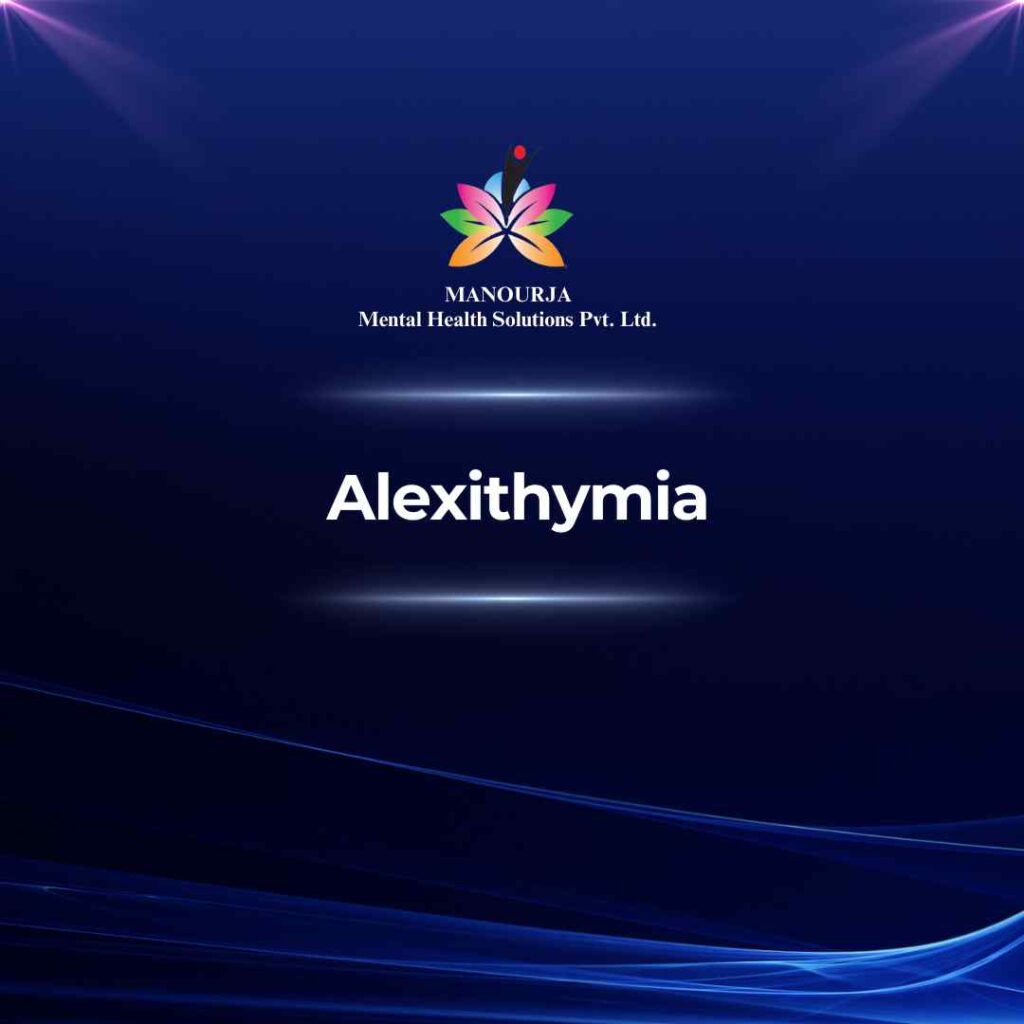Alexithymia

Alexithymia is a subclinical personality trait characterized by the inability to identify and describe emotions in oneself. People with alexithymia have difficulty recognizing their own feelings and the feelings of others, and they often struggle to distinguish between emotions and bodily sensations associated with emotional arousal.
Alexithymia as a Sign and Symptom of Mental Illness
Alexithymia is not classified as a mental illness on its own, but it is often seen as a symptom or trait associated with various mental health conditions. The key features of alexithymia include:
- Difficulty Identifying Emotions: Trouble recognizing and naming one’s own emotions.
- Difficulty Describing Feelings: Inability to articulate how one feels to others.
- Limited Imaginative Processes: Lack of imagination, including difficulties with daydreaming or fantasy.
- Externally-Oriented Thinking: Focus on external events rather than internal emotions and experiences.
Mental Illnesses Associated with Alexithymia
- Individuals with depression may exhibit alexithymia, leading to difficulties in recognizing and expressing their emotional distress, which can complicate treatment and recovery.
- Alexithymia can co-occur with anxiety disorders, making it hard for individuals to understand and communicate their anxious feelings.
Autism Spectrum Disorder (ASD):
- Alexithymia is common in individuals with ASD, contributing to social communication difficulties and challenges in understanding emotions.
Post-Traumatic Stress Disorder (PTSD):
- People with PTSD may develop alexithymia as a way to cope with overwhelming emotions, leading to numbness and emotional detachment.
Substance Use Disorders:
- Alexithymia can be both a risk factor and a consequence of substance use disorders, where individuals may use substances to manage unrecognized or unarticulated emotions.
- In conditions like anorexia nervosa or bulimia nervosa, alexithymia can impact the individual’s relationship with food and their body by hiding underlying emotional issues.
Borderline Personality Disorder (BPD):
- While BPD is often characterized by intense emotions, some individuals with BPD may also experience alexithymia, leading to confusion about their emotional state.
Somatic Symptom Disorder:
- Individuals with this disorder may exhibit alexithymia, focusing on physical symptoms and having difficulty acknowledging the emotional factors contributing to their condition.
Understanding alexithymia and its connection to these mental health conditions is essential for effective diagnosis and treatment. Therapies aimed at improving emotional awareness and expression, such as cognitive-behavioral therapy (CBT) and mindfulness practices, can be particularly beneficial in managing alexithymia and its impact on mental health.
At MANOURJA, we believe in the transformative power of counseling. Our experienced therapists offer a safe and supportive space where you can explore your thoughts, emotions, and challenges. Through personalized counselling sessions, we’ll work together to develop coping strategies, build resilience, and achieve lasting positive change. Discover the path to a healthier, happier you with MANOURJA counselling services.
MANOURJA Rehabilitation Services
At MANOURJA, we’re dedicated to helping you in rebuild your life, after difficult times. Our rehabilitation services focus on understanding what you need to move forward, whether you’re recovering from addiction, trauma, or any psychological – social challenges. We create personalized plans, that are all about helping you, regain your strength and find hope again. With a caring team by your side, you’ll have the support to make real progress and take steps toward a brighter, healthier future.
